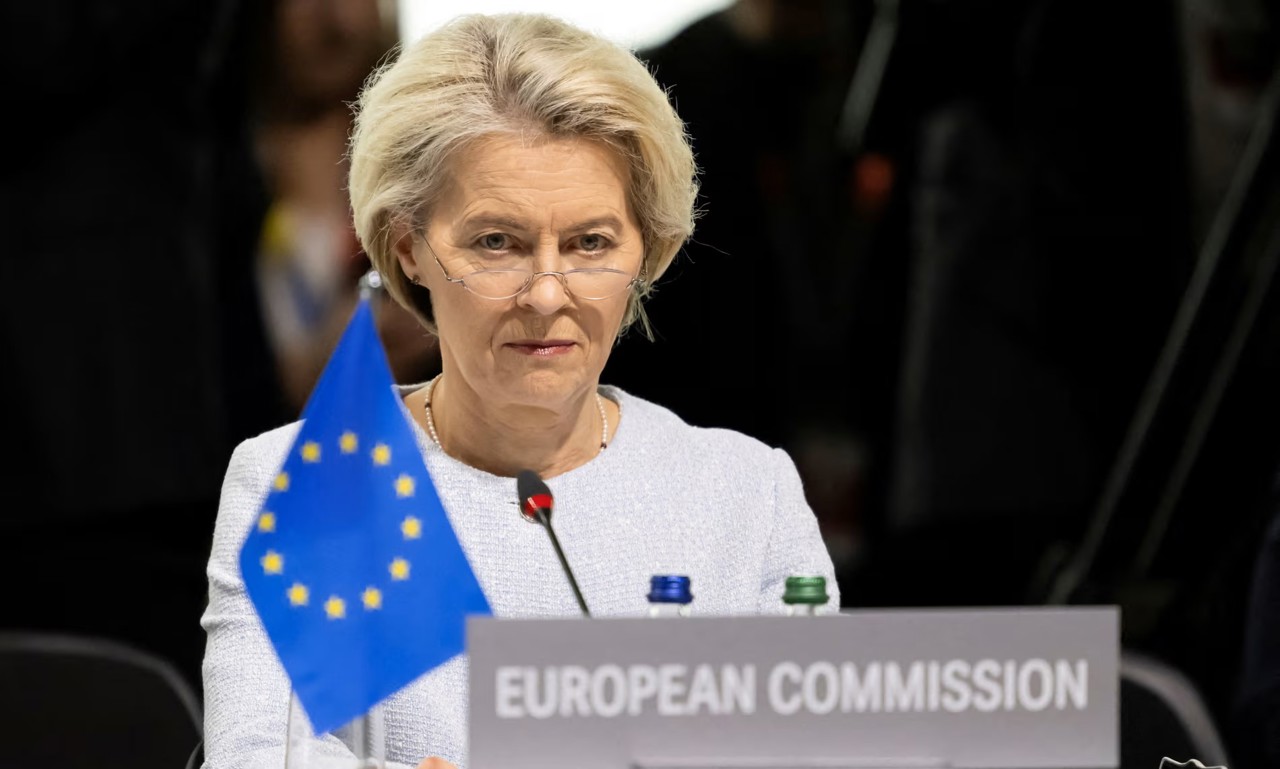Inside Ursula von der Leyen's Controversial Tenure at the European Commission
The latest issue of the monthly political and geopolitical studies magazine "Le Monde Diplomatique" for July contains a detailed portrait of Ursula von der Leyen, who is almost certain to receive the EU Parliament's endorsement today for a second five-year term as President of the European Commission. She has held this position since 2019.

From the outset, "Le Monde Diplomatique" presents Ursula von der Leyen as viewed by her closest collaborators and various governments: a staunch conservative prepared to continue the legacy of José Manuel Barroso, the previous President of the European Commission. Barroso, bypassing the interlude of Luxembourger Jean-Claude Juncker's term, transformed social Europe into a true neo-liberal laboratory.
She is characterised by traditional values, pragmatism, and deference to capital cities. Under her leadership, as under Barroso, the European Union has become ultra-liberal, implementing free-market rules with a rigour not seen even in the United States, which it follows.
This former Christian-Democratic Defense Minister of Germany is even considered "the United States' trailer," to such an extent that, in the spring, after meeting Joe Biden, she was considered a possible candidate for NATO Secretary-General, had she not secured her position as head of the European Commission.
However, her appointment could be at risk - she has made many enemies by appointing her close collaborators to high and lucrative positions. On Wednesday, July 17, the European Ombudsman, the public mediator, again accused the EU Commission of opacity in the case of acquiring vaccines at astronomical prices during the COVID-19 pandemic. It is known that some of Ursula von der Leyen's SMS messages mysteriously disappeared from her service phone.
In Brussels, the Irish Emily O'Reilly, who holds the feared position of "European Ombudsman" and public mediator, revealed the results of the investigation into how the President of the European Commission, Ursula von der Leyen, refuses to allow access to her SMS exchanges with the leadership of the pharmaceutical company Pfizer. These exchanges took place at the beginning of the pandemic and involved the conditions that led to the Commission's acquisition of a large number of Pfizer vaccines at an abusive price set by the company.
This, as noted by the press, fuels conspiracy theories. In Brussels, however, within the rigid framework of EU institutions, no one speaks openly about it, justifying that now, in the midst of the Ukrainian crisis, is not the time to weaken the authority of the Commission.
"The Commission's response to my findings does not provide any indication whether the SMS messages in question exist and did not offer any clarity regarding how the Commission would respond to a specific request to examine these text messages," stated Emily O'Reilly's communiqué.
"The handling of this access to documents request leaves the regrettable impression of an EU institution that is not transparent on important matters of public interest."
"Public access to SMS messages related to the work of institutions is a new field for the EU administration, one that must be addressed substantially and in good faith. Our investigation is a wake-up call for all EU institutions."
"Recent revelations about the lobbying tactics of an American multinational in Europe, including SMS messages, underscore the urgency of this issue for public administrations," said the Ombudsman.
In Germany, where von der Leyen was the Minister of Defense before being propelled to Brussels through a Macron-Merkel agreement, she left an execrable impression after awarding consulting contracts to foreign firms, especially American ones like McKinsey, without respecting the rules.
The Bundestag committee that was supposed to investigate Ursula von der Leyen just as she became the head of the European Commission in 2019 discovered that her service mobile phone from that time had been wiped and cleaned of any information, with its content reinitialized and entirely obliterated.
The strange case was then revealed by the weekly Der Spiegel, and a Green deputy from the Bundestag committee, a specialist in military matters, Tobias Lindner, filed - unsuccessfully - a complaint with the Berlin prosecutor's office for "destruction of evidence" in the framework of an investigation.
Finally, despite all the accusations brought against her, as Le Canard enchaîné writes, using another wordplay, which this time is identical to the corresponding one in Romanian: still, "do not sell Ursula's skin"…
Ursula von der Leyen, however, pleases the northern capitals because she continues Barroso's policy. Barroso, who did immense harm to the European construction through his servile attitude towards governments, especially the powerful ones, and through the meticulousness with which, at the insistence of large industrial and lobbying groups, he worked for a decade to dismantle everything social in Europe in favour of multinationals and the so-called competition.
An empty rhetoric that always hid a lack of policy and vision, with von der Leyen continuing the opaque functioning of the EU Commission.
But regarding her conservative side, let's not forget that she created, within the Commission, the position of Commissioner for the "European way of life," an indirect reference to Christian values. However, von der Leyen, who is a practitioner and has seven children, could not state this directly, especially since any mention of Christianity had already been excluded from the preamble to the defunct European Constitution and the Treaty of Lisbon.
Author: Dan Alexe
Translatino by Iurie Tataru




